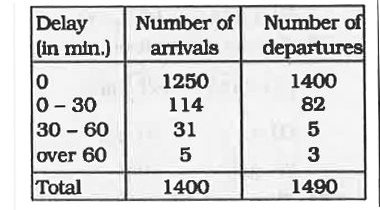The train arrived in the station.
The train arrived at the station.
Similar Questions
In the following questions, some of the sentences have errors and some are correct. Find out which part of a sentence has an error. The number of that part Is your answer. If there is no error, the answer is (5). No sooner did (1)/the train arrived at the station (2)/ then the passengers (3) / rushed towards it. (4)/ No error (5)
View SolutionA train X departs from station A at 11.00 am for station B, which is 180 km away. Another train Y departs from station B at 11.00 am for station A. Train X travels at an average speed of 70 kms/hr and does not stop any where until it arrives at station B. Train Y travels at an average speed of 50 kms/hr, but has to stop for 15 minutes at station C, which is 60 kms away from station B en route to station A. Ignoring the lengths the train, what is the distance, to the nearest km, from station A to the point where the trains cross each other?
View Solution
Knowledge Check
No sooner did he arrive at the station .... the train left.
AwhenBwhileCthanDwhereNo sooner did he arrive at the station .... the train left.
AwhenBwhileCthanDwhereIdentify the appropriate alternative for filling in the blanks in the sentence given below.
No sooner did he arrive at the station ........ the train left.AwhenBwhileCthanDwhere
A goods train leaves as station at a certain time and at a fixed speed. After 6 hours an express train leaves the same station and moves in the same direction at a uniform speed of 90 kmph. This train catches up the goods train in 4 hour. Find the speed of the goods train.
View SolutionDirections (1-2) : Select the alternative that will improve the underlined part of the sentence. In case there is no inprovement select "No improvement".
Hardly had I arrived at the station than the train came.
View SolutionThe percentage of number of trains arriving late at the station is
View SolutionThe table given below shows survey carried out at a railway station for the arrivals/departures of trains for the month of January, 2000. Study the table and answer the following questions.

The percentage of number of trains arriving late at the station is :
View SolutionIf the punctuality of railways is defined as the number of occasions onwhich trains arrived or departed in time as a percentage of total number of arrivals and departures from the station, then the punctuality for the month under observation is
View Solution
